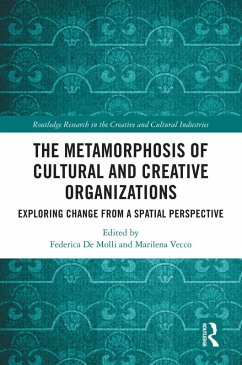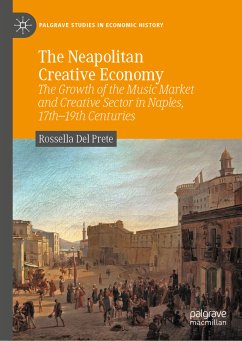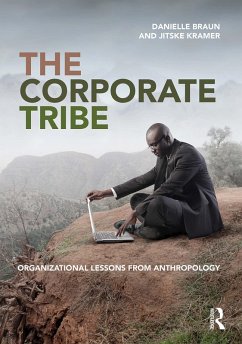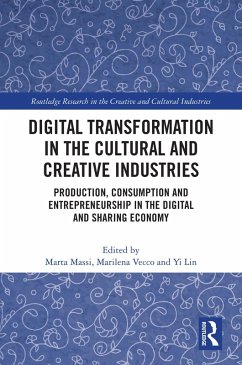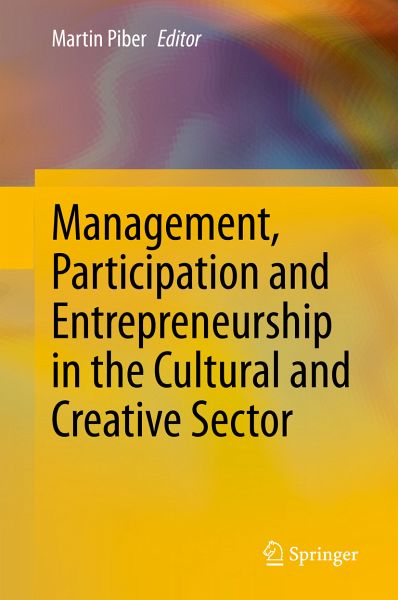
Management, Participation and Entrepreneurship in the Cultural and Creative Sector (eBook, PDF)
Versandkostenfrei!
Sofort per Download lieferbar
136,95 €
inkl. MwSt.
Weitere Ausgaben:

PAYBACK Punkte
68 °P sammeln!
This book elucidates and maps the societal impact of experience and heritage, participation, and entrepreneurship in the cultural sector. The contributions address and explore the relevance of culture, cultural entities, and heritage as collective memories and reservoirs of experience for other social systems, change and societal innovators like entrepreneurs. Insofar, cultural activities can be understood as a bridge between past experiences and future challenges. The first key focus is the participation of people in various contexts, initiatives, and projects. Such participation unleashes cr...
This book elucidates and maps the societal impact of experience and heritage, participation, and entrepreneurship in the cultural sector. The contributions address and explore the relevance of culture, cultural entities, and heritage as collective memories and reservoirs of experience for other social systems, change and societal innovators like entrepreneurs. Insofar, cultural activities can be understood as a bridge between past experiences and future challenges. The first key focus is the participation of people in various contexts, initiatives, and projects. Such participation unleashes creativity and connects different societal layers - culture, economy, and innovation. Accordingly, a second focus is the entrepreneurial efforts and ideas that originate within arts and culture.
Readers will find critical empirical and theoretical studies that challenge the current understandings of the cultural sector from different theoretical perspectives and with different methodological approaches. A variety of topics are explored within the thematic areas of cultural heritage, managerial practices, participation, and cultural entrepreneurship, as well as their inter-relations. Ultimately the aim is to provide the reader with a better understanding of the sometimes conflicting, sometimes mutually fertilizing areas of the arts, culture, business, management, and innovation. The book will be of interest to scholars, students, professionals, and policymakers.
Dieser Download kann aus rechtlichen Gründen nur mit Rechnungsadresse in A, B, BG, CY, CZ, D, DK, EW, E, FIN, F, GR, HR, H, IRL, I, LT, L, LR, M, NL, PL, P, R, S, SLO, SK ausgeliefert werden.




